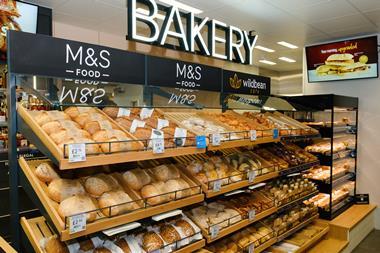The Competition Commission’s final report into the UK grocery market has been slammed for failing to tackle the “Tesco Town” effect. In the report, which marks the end of a two year investigation, the Commission concluded that supermarkets were giving customers a good deal – and that rival supermarkets should be given more power to open up in towns dominated by one chain.
The report included four main measures:
- a recommendation for the inclusion of a “competition test” in planning decisions on larger grocery stores
- action to prevent land agreements which can restrict entry by competitors
- the creation of a new strengthened and extended Groceries Supply Code of Practice
- a recommendation to establish an independent Ombudsman to oversee and enforce the code.
Commission chairman Peter Freeman said: “We have looked extensively and listened very carefully when looking at all the matters raised with us but our overriding concern throughout has been whether the market is working well in the interests of consumers.
“In many important respects, consumers are receiving the benefits of competition, such as value, choice, innovation and convenience, but we need to take appropriate action to address those areas where they could be served better and where their interests could be damaged in future. We have been very careful to ensure that our actions match the scale of the problems we have identified.”
The report was criticised by the Association of Convenience Stores (ACS), which claimed the Commission had identified competition in the market as being between the big four supermarket chains – while ignoring the need for a variety of smaller retailers and supply chains.
ACS chief executive James Lowman said: “It is out of kilter with consumer trends towards more local shopping, and neglects the needs of many groups of consumers whose requirements are not properly met by the big four superstores.”
The ACS claimed the Commission had, over the course of its inquiry, uncovered evidence which showed “the anti-competitive effects of supermarket buying power”. But it said the Commission had chosen not to take action to address major distortions in buying prices.
In a statement, it added: “It has ignored significant amounts of below cost selling and aggressive pricing behaviour, and the alarming trend of consolidation in the number of stores built, and acquired, by an ever smaller number of large companies.”
On the report’s recommendations on policy, Lowman said the ACS supported the Commission’s aim to prevent one large company dominating a local market through a planning competition test. But he added: “The proposal is not strong enough to make a real difference to the so called ‘Tesco Town’ effect. The proposed test applies only to stores, over 1,000 sqm. Therefore, in a town dominated by one large supermarket, nothing prevents Sainsbury or Tesco, for example, from opening as many ‘Local’, ‘Metro’, ‘One Stop’ or ‘Express’ stores as they want. This is a gaping loophole that undermines the credibility of the Commission’s recommendation.”
Regarding the Obmudsmen, Lowman said that much had been left unresolved about the appointment, such as the funding of the position, and the ACS feared this would mean that “a long period of legal wrangling” would ensue, with no new regulation in place for some time. Lowman said the inquiry had “failed local shops”, but the ACS would continue to fight for the future of retailers.
Meanwhile, the Office of Fair Trading (OFT) is investigating Tesco, Sainsbury’s, Asda and Morrisons over fixing the prices of health, beauty and grocery products. It is also looking into allegations that tobacco firms and 11 retailers, including Asda, Sainsbury’s and Tesco, had fixed the price of tobacco products.

































No comments yet